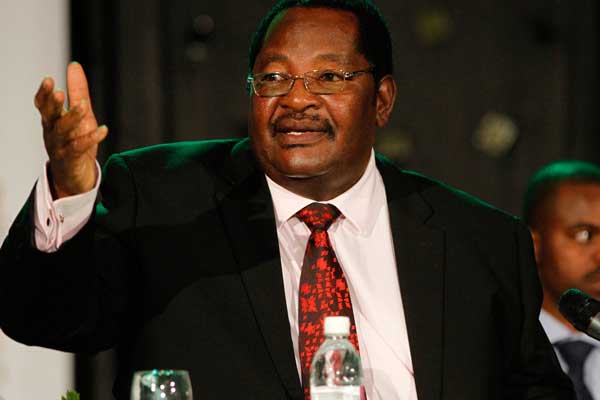
SPECIAL Economic Zones (SEZ) are still far from implementation despite the Special Economic Zones Act being gazetted into law and the recent gazetting of Statutory Instrument 59 of 2017.
BY TATIRA ZWINOIRA

SI 59 of 2017 was gazetted last week and allows rebates on raw materials, intermediate products and machinery imported for use in SEZs. However, since there are no active SEZs, SI 59 of 2017 remains an ineffective piece of legislation.
On Thursday, Macro-Economic Planning and Investment Promotion minister Obert Mpofu told Standardbusiness that the ministry still needed to set up a SEZ board and authority before putting in place the SEZs.
“There is not one company or investor that has started operating under SEZs because we are still working on the modalities to establish those special economic zones, such as the secretariat and putting in place the framework that will run the SEZs. We are waiting for the board [SEZ board] to be appointed and thereafter the SEZ authority will be established by the board which will decide over all investment applications under the SEZs,” he said.
“At the moment, we just have applications, not approvals. There is no limit to that initiative. It will depend on the number of investors that want to go into those zones, but at the moment there are so many applications from both foreign and local investors.”
He said since the SEZs were a new initiative, they were still refining the policy as they engaged investors and that was why they needed to set-up the board first, followed by the authority.
The establishment of the board and authority is provided under the SEZ Act signed into law by President Robert Mugabe in November 2016 and as such, must be complied with before investors can operate in these zones.
- Chamisa under fire over US$120K donation
- Mavhunga puts DeMbare into Chibuku quarterfinals
- Pension funds bet on Cabora Bassa oilfields
- Councils defy govt fire tender directive
Keep Reading
When the SEZ Act became law, Chinese investors expressed eagerness to operate in these zones. In January this year, Chinese Federation of Zimbabwe deputy president Steve Zhao said Chinese investors were “excited” about the law.
In fact, sources say Chinese investors are already mobilising millions of dollars to operate in the zones when they become operational.
Government is engaging with some of these Chinese investors apart from the ones in South Africa and South Korea who have expressed interest in the zones.
Yet, despite this “growing interest”, as one economist put it, government still seems to be moving slowly in making the necessary adjustments.
Last week, Labour and Economic Development Research Institute of Zimbabwe director Godfrey Kanyenze told this paper that delays in the review of the laws impeding business were a sign that Zimbabwe was not driven by a common vision.
Richard Mbaiwa, the Zimbabwe Investment Authority (ZIA) CEO said there was need to improve the general investment climate in the country and to do more than SI 59 of 2017 and to remove “obstacles and bureaucratic hurdles”.
“There has been a process [ease of doing business reforms] that you may be aware of that has been going on for the last two years now and also some laws that are being reviewed to make it more friendly for investors to do business in the country,” he said.
“I think this [SI 59 of 2017] is not the only incentive that is applicable to SEZs but there is a plethora of fiscal and non-fiscal incentives that will be applicable to investors, which I think they would find very attractive.”
SEZ are areas in which business and trade laws are different from the rest of the country, which increases trade, investment, job creation and effective administration by offering incentives to investors.
Zimbabwe’s foreign direct investment (FDI) inflows are currently very low because investors are not keen on putting their money where laws are not consistent or are delayed.
The ZIA actually saw a drop of over $1 billion in projects approved in 2016 from a high of $3 billion recorded in the previous year. FDI is projected to be even lower by the end of this year.
SEZs have become the new attraction to foreign investors, with at least 29 countries having already adopted them.
Of that number, Africa is represented by six countries that have adopted the SEZ concept, namely Democratic Republic of Congo, Egypt, Ethiopia, Nigeria, Mauritius and Zambia.











